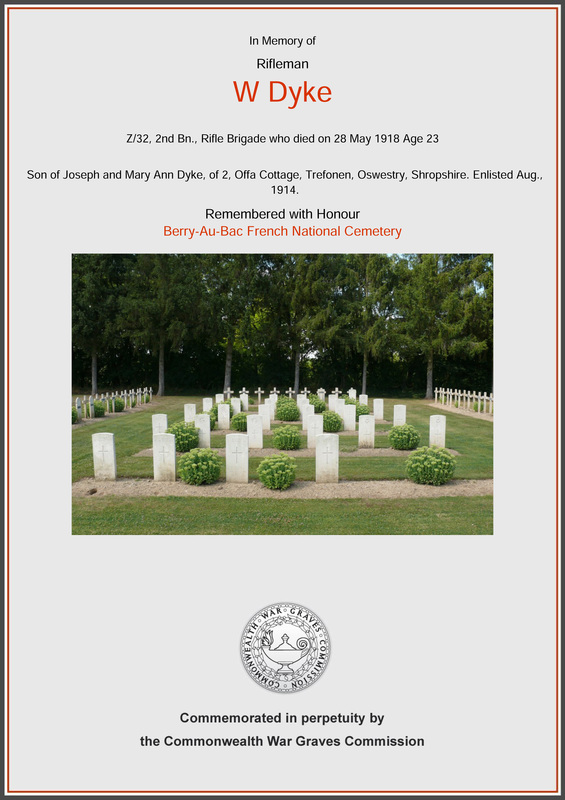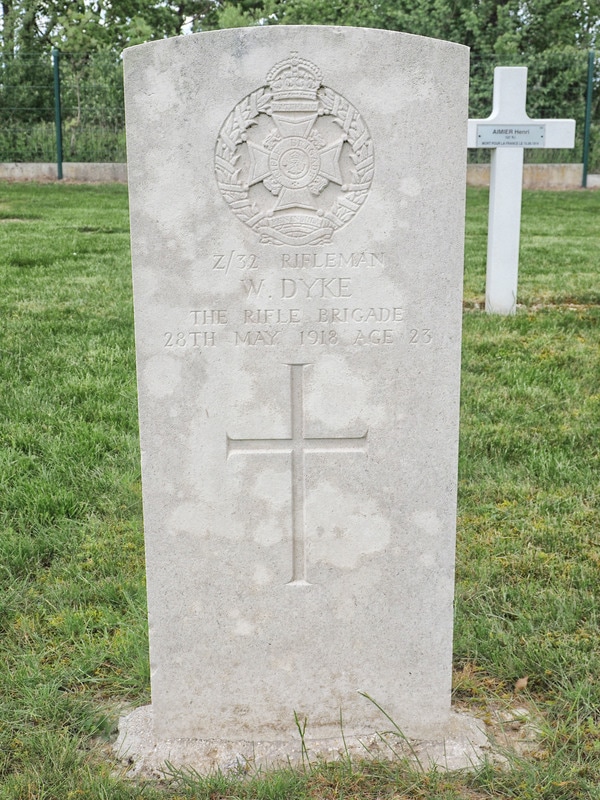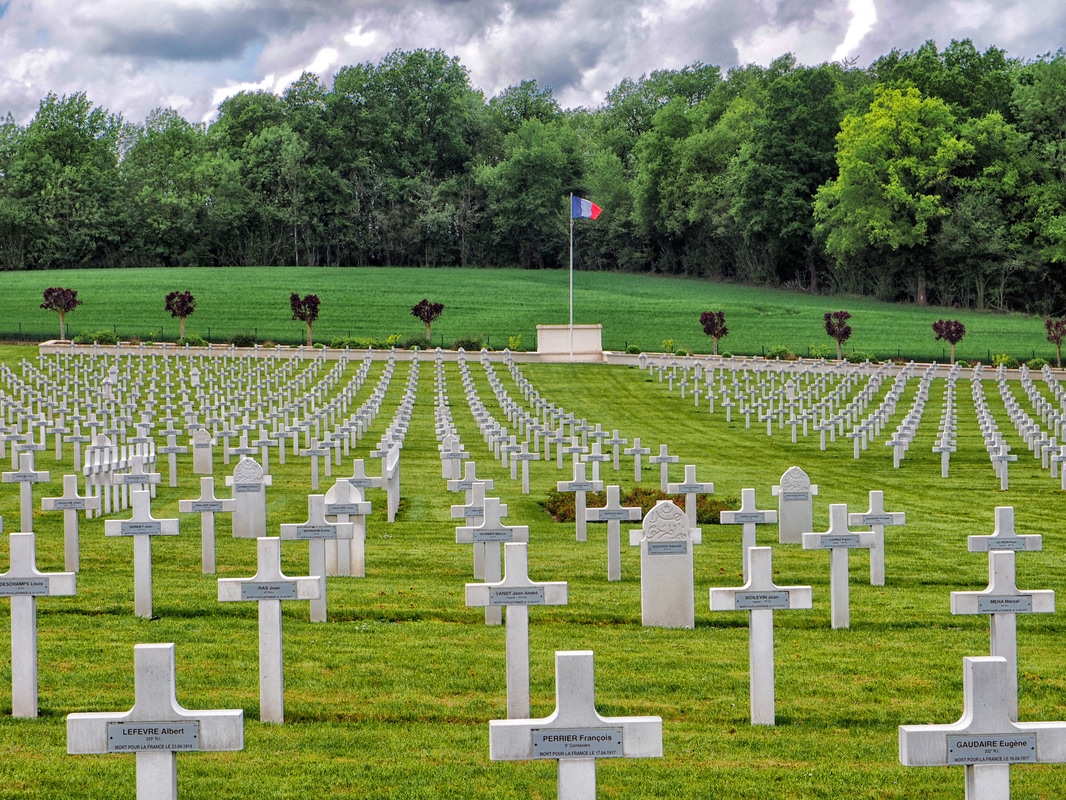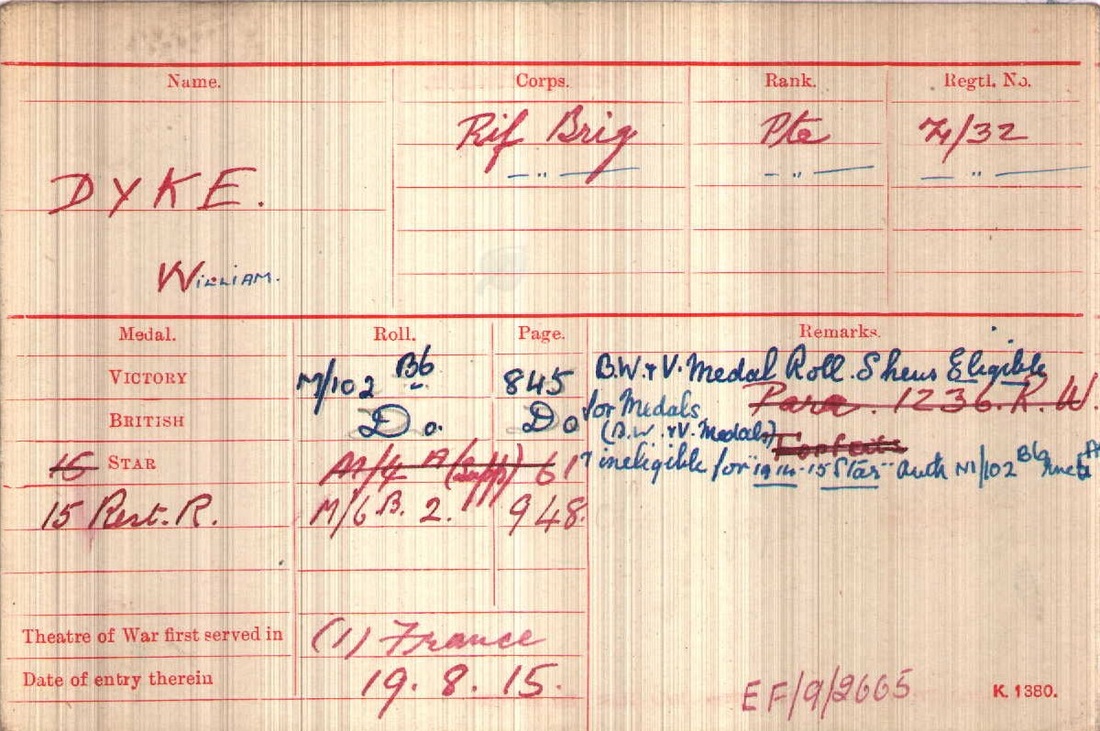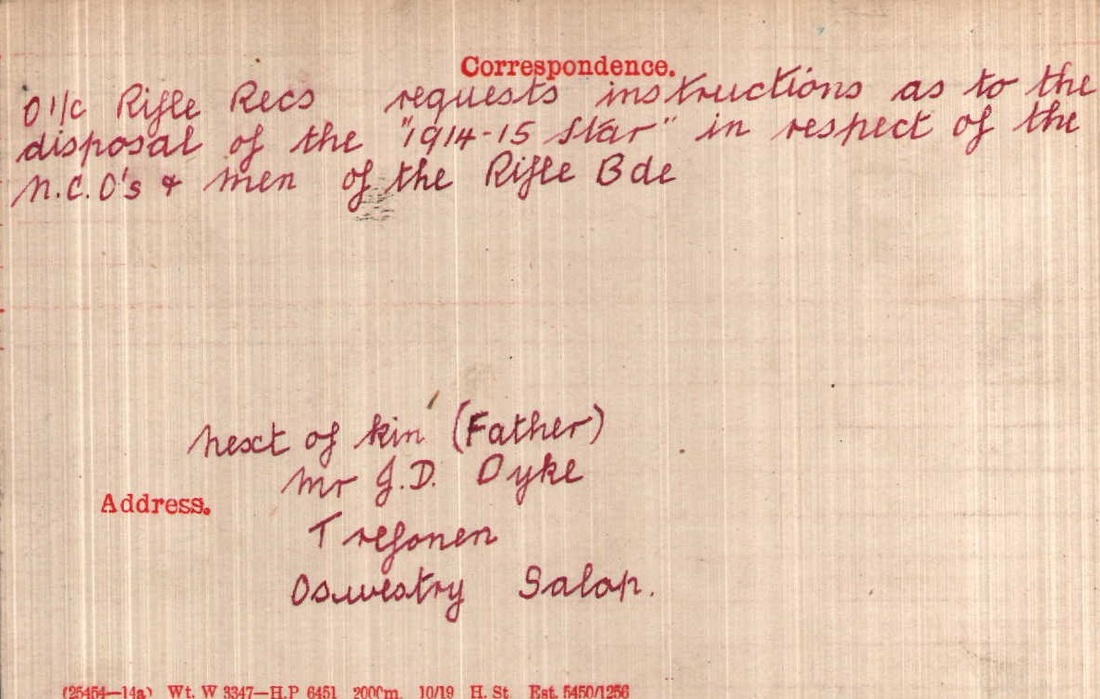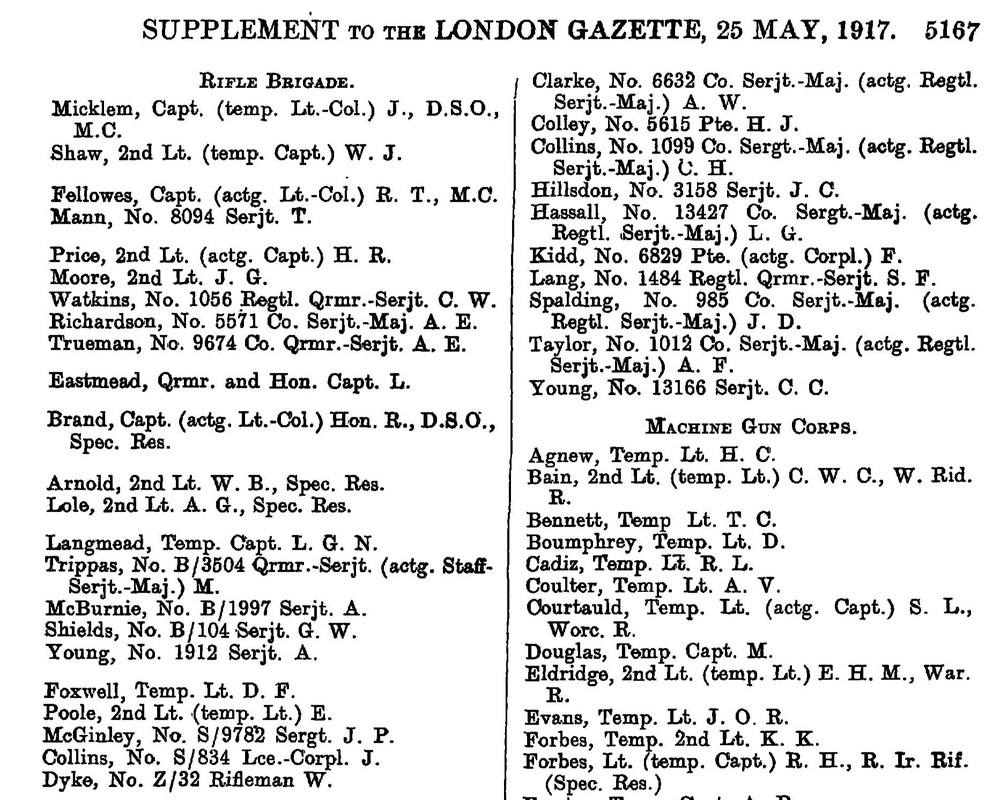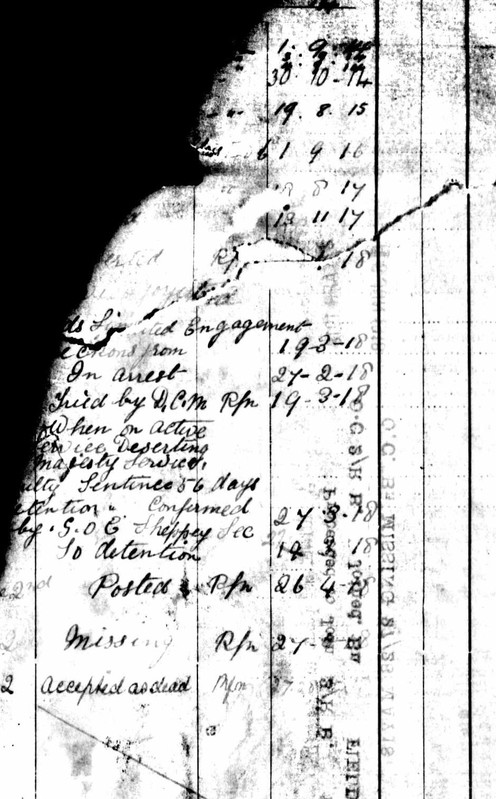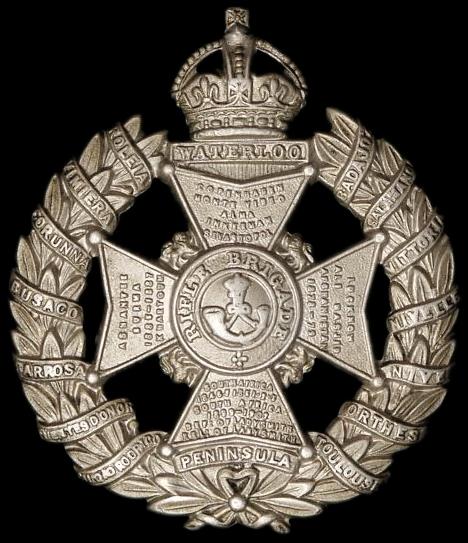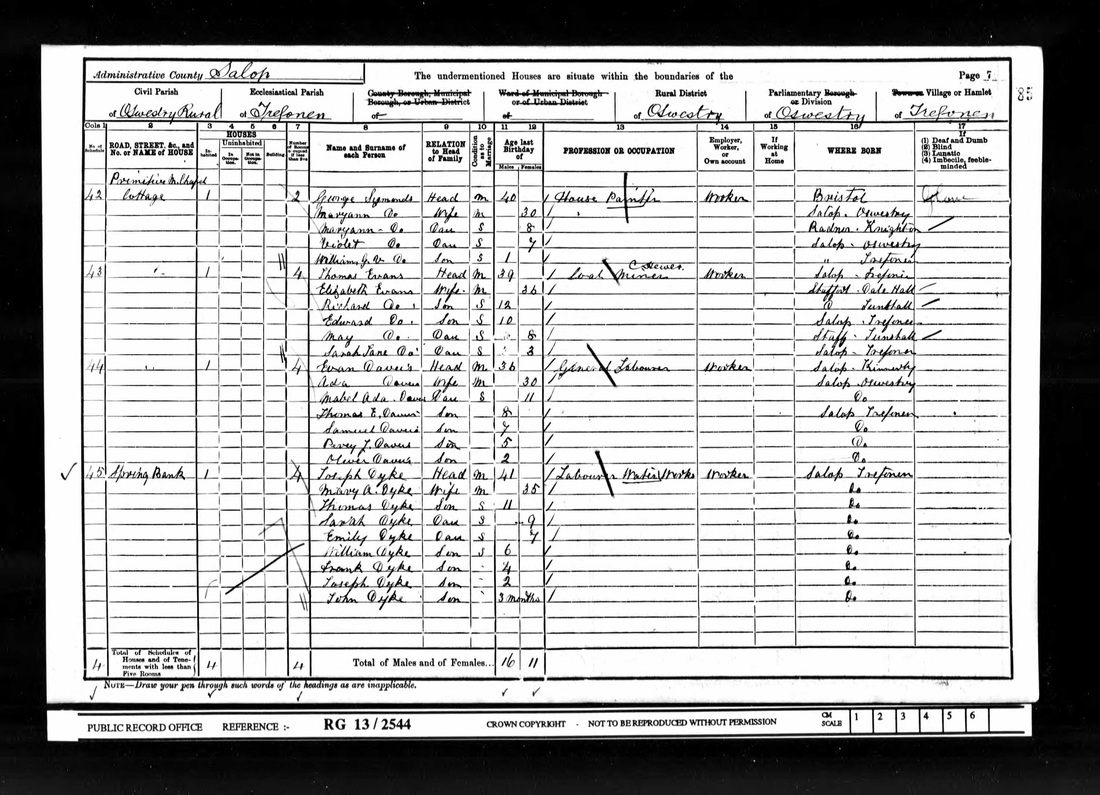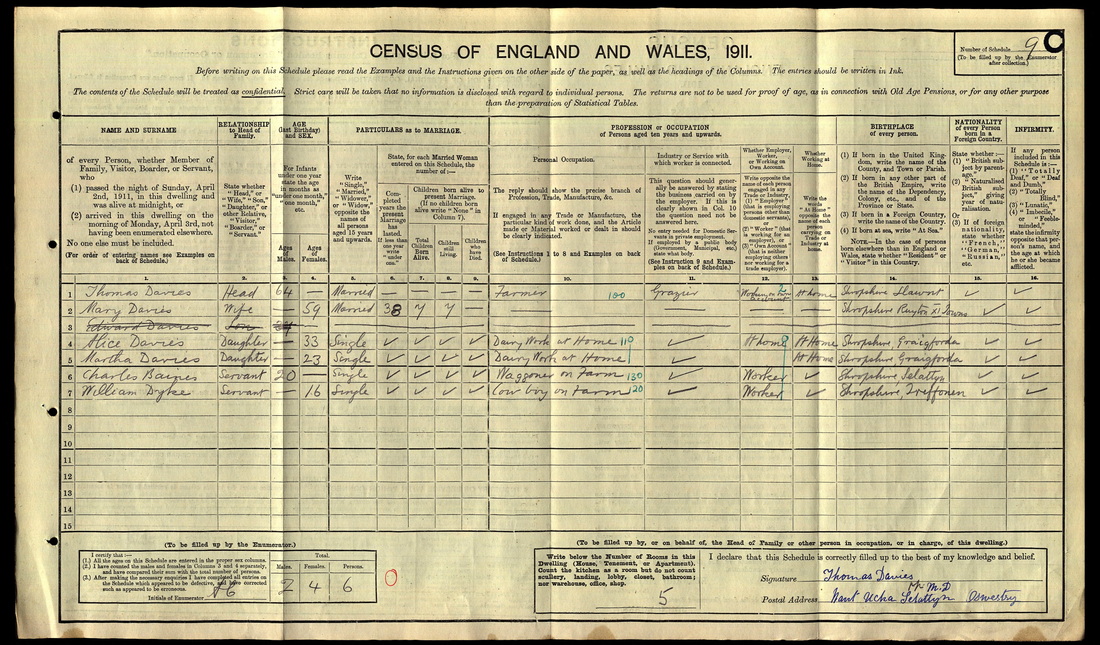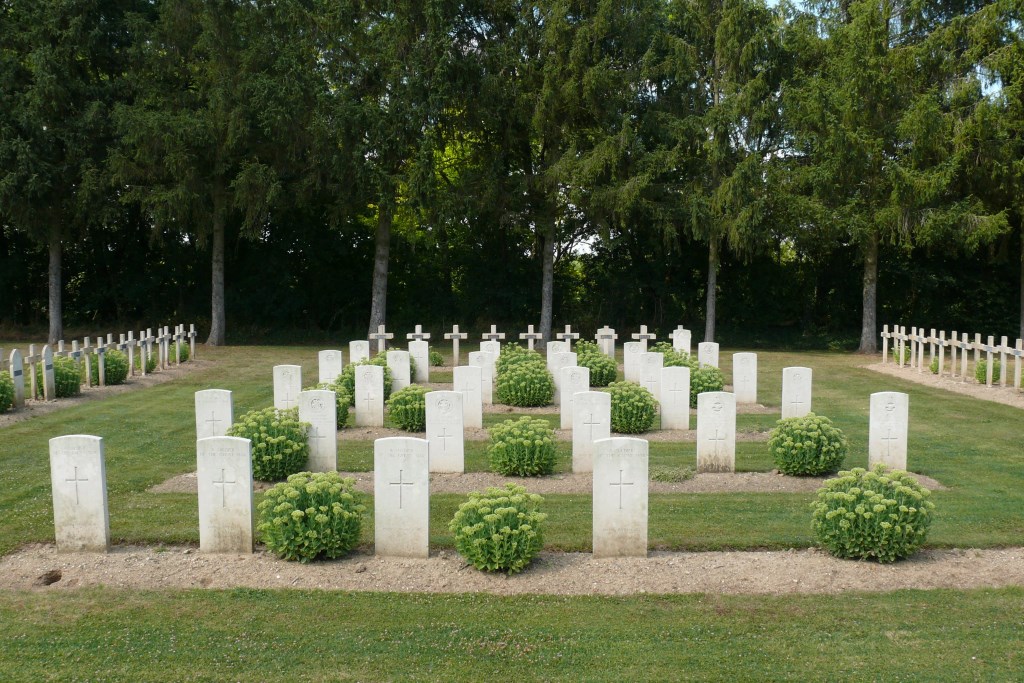William Dyke
|
Introduction
William Dyke was born in 1895 to Joseph and Mary Anne Dyke. From census records it would seem he was one of fourteen children. The Dyke family lived in various cottages in Trefonen during Joseph's time as a coalminer and then labourer at the water works in Oswestry, the latter employment presumably would have come about after the closure of the pits in around Trefonen. William is recorded in the 1911 census as working as a cow hand on Nant Ucha farm in Sellatyn. The Dyke family were to suffer loss unimaginable in a small community with five members of their family dying as a result of World War 1 including an elder brother Thomas Sudlow Dyke |
Military Record including Regimental and Battalion Information
|
William Dyke enlisted in Manchester on the 1st September 1914. There are a few pages of his war record still in existence although it is badly damaged and is difficult to decipher exactly where he was at certain points.
It is known however that he was at various times with the 2nd, 6th Reserve and 8th battalions. From his Medal Roll Index card opposite it can be seen he first landed in France on 18th August 1915 it is presumed this was with the 8th battalion replacements that had been sent out after the Battle of Hooge where the Germans had used their new weapon the flamethrower for the first time. Certainly by December William was serving in C Company of the 8th Battalion as identified in the nominal rolls in the war diaries Private William Dyke was mentioned in dispatches in the London Gazette on 25th May 1917. (see opposite) His name is mentioned in a list of Rifle Brigade recipients but no specific act of bravery is alluded to. |
It would also seem that later that year William was taken ill and sent home from a sick furlong on 13th November
William Dykes war record took a very different turn when he came home on leave due to illness. On 21st January 1918 whilst at Queenborough near the Isle of Sheppey William deserted. It may have been that he was there ready to go back to France and finally felt he couldn't do it any more, after all he had been in some of the bloodiest conflicts of the war, we will never know but he was arrested back in home village of Trefonen on the 27th February. The newspaper report and Williams war record below shows his desertion
|
It seems according to his record opposite that he was sentenced to 56 days detention on the 19/3/18 which must have included his time in arrest from the 27/2/18 as on the 26/4/18 he was posted back to his Battalion in France.
One month later he was posted as missing with his death finally accepted on the 28th May aged just 23 |
|
Rifle Brigade
The Regiment formed a total of 28 battalions during the First World War, in addition to the pre-war establishment of two Regular and two Militia and two Territorial Battalions. The regiment lost 11,575 men who were killed during the course of the war and were awarded 52 battle honours including 10 Victoria Crosses. |
Census data
Memorial and War Grave Information
Historical Information
The cemetery was formerly called the Cimetiere Militaire de Moscou. The Commonwealth graves from the 1914-18 War were all brought in after the Armistice. Of these, over half from the 1914-18 War are unidentified. All fell on the 27th-29th May, 1918, in the Battle of the Aisne.
In the north-eastern part is a plot containing the graves of two unknown British soldiers of the 1939-1945 War and 29 British graves of the 1914-1918 War.
click on the link below for more information
http://www.cwgc.org/find-a-cemetery/cemetery/33408/Berry-au-Bac%20French%20National%20Cemetery
The cemetery was formerly called the Cimetiere Militaire de Moscou. The Commonwealth graves from the 1914-18 War were all brought in after the Armistice. Of these, over half from the 1914-18 War are unidentified. All fell on the 27th-29th May, 1918, in the Battle of the Aisne.
In the north-eastern part is a plot containing the graves of two unknown British soldiers of the 1939-1945 War and 29 British graves of the 1914-1918 War.
click on the link below for more information
http://www.cwgc.org/find-a-cemetery/cemetery/33408/Berry-au-Bac%20French%20National%20Cemetery
